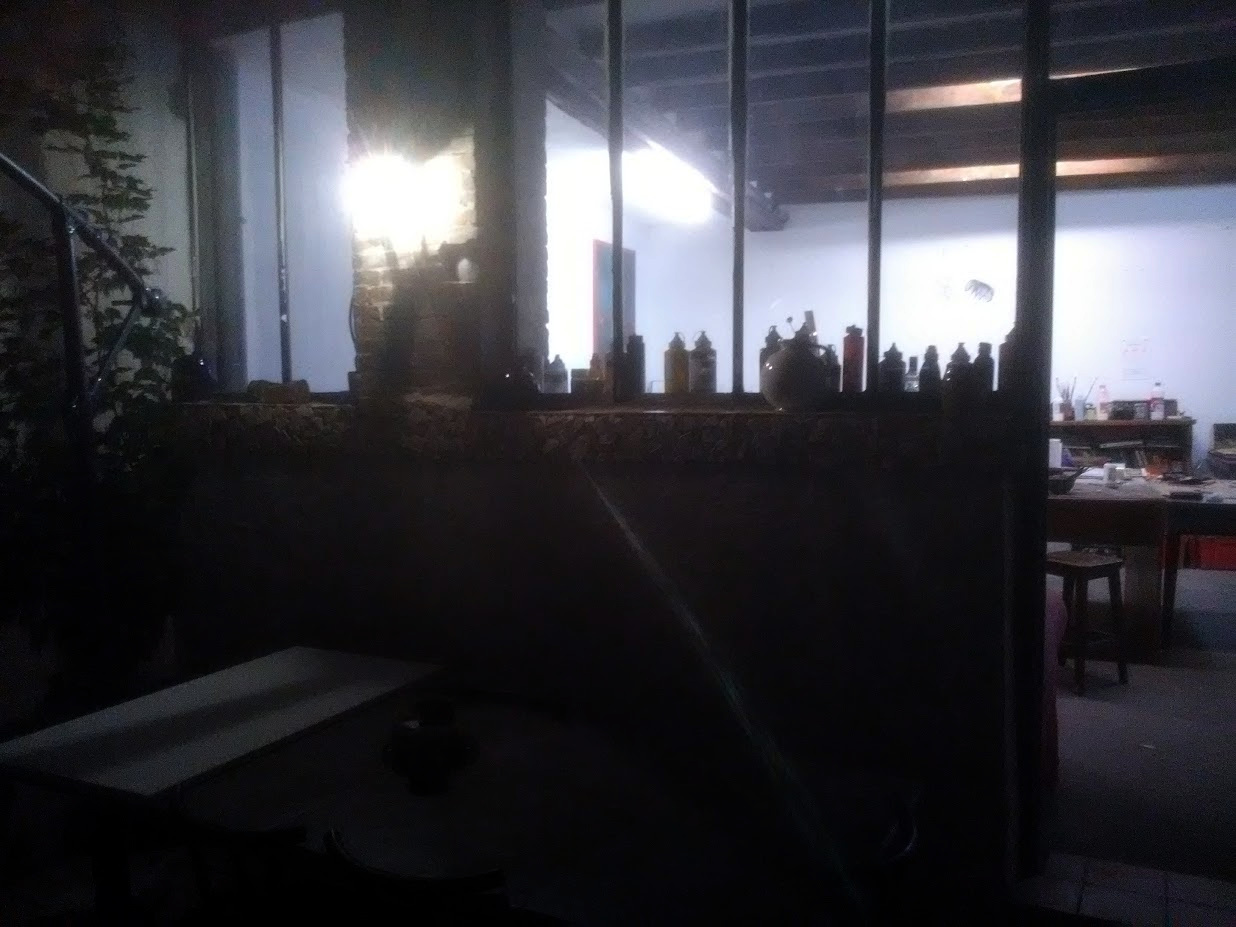The Moment Before the Light
A notebook entry should unfold like a recipe. One should proceed methodically. Lay out the ingredients on the counter, slice the vegetables into julienne or brunoise, measure the spices, place the garlic, the salt, the herbs in small white bowls. Or do the opposite : open the fridge without any clear idea, grab a pepper, improvise with almost nothing. I do one or the other, without preference. Alternating is enough.
This isn’t about telling anything. Even less about transmitting. It might not even be about writing. It’s simply about noting down a day’s disposition. A fleeting inclination. A mood. The space between two actions. A text to capture what escapes. What happens when one thought nothing was happening.
I’m in the kitchen. It’s early. The light is white, slightly slanted. It bounces off the stainless-steel sink. The tap drips at regular intervals. There’s no sound except the fridge humming on and off. I had a coffee. I can’t recall whether I added fresh grounds or just poured water over yesterday’s. The taste was there, but faint, distant. As if I had drunk the memory of a coffee.
There are things we forget on purpose. And others that return on their own. This morning, it was the thought of a weak coffee. A detail of no importance. But I return to it, perhaps because there was nothing else to think about.
This notebook won’t tell a story. It will remain on the edge. It will speak of the days when nothing happens. Of what we see without noticing. Of what we feel when we feel nothing. The background noise of hours. The light on the table. The slowness of a gesture. A fragment of morning.
I expect nothing from this text. I let it come. I watch it appear, the way one watches a drop of water spreading on a tablecloth.
Earlier I spoke of recipes. Of these notebooks we fill the way we cook : sometimes methodically, sometimes in haste, by instinct. It’s while thinking of that—of entering writing without really knowing why—that Toussaint’s book on Monet came to mind.
Because in truth, what Monet does, there, in the studio, is this : a notebook. A page he returns to endlessly. An attempt to fix the impossible, to catch the light before it slips away.
And I, here, with my notebooks, I’m doing exactly the same. I enter a room, I write a line, not knowing yet what I’m looking for. Perhaps just a bit of quiet. Perhaps a sentence that holds, like a brush loaded with blue.
That text on Monet reminds me that incompletion is a form. That returning is a method. That repeated gestures, hesitations, re-beginnings are part of the work. And that even if no one sees it, even if it’s too slow, too quiet, it’s worth continuing.
A notebook isn’t there to say what we know. It’s to stay in the blur, in the tremor. Like Monet in his studio. Like me this morning, searching for the light on the table.
There is a moment, says Jean-Philippe Toussaint, that one would like to seize. Not a scene, not an event. Just an instant. The moment when Claude Monet pushes open the studio door.
That moment changes nothing. Monet enters, that’s all. But that moment contains everything : the light, the painting, the solitude, the war outside, the silence within. A man is about to paint. He’s done it his whole life. And yet, today, it’s different. Because he’s getting older. Because he doubts. Because he knows he may never finish this painting.
I read that book the way one enters a familiar room. There’s nothing to learn, only to be there. Time is suspended. Every word weighs. Nothing happens, and yet the tension is extreme : the tension of going on, despite everything.
Toussaint doesn’t talk about Monet. He watches him. He follows him into the studio, morning after morning. He notes the way he adjusts his brushes, cleans his glasses, approaches his canvases without ever believing they are done. It’s not about describing the painting. It’s about rendering the experience of looking, the inner mechanics of the gesture. Monet doesn’t paint the Nymphéas. He dissolves into them.
The book itself is a studio. Toussaint works there with a fine brush, with transparency. He returns, he rewrites. He writes the way one deepens a shadow or erases a too-bright light. Art is that tension toward the unfinishable. What we try, always, knowing it won’t be enough.
I read that book, and I hear the war, faintly, outside. Like a low hum. I see the man, alone, old, slow. I see his hand searching for the exact color. There is no story. Just presence. Fragile. Stubborn.
I think of our own studios. Our own gestures. Those instants when we pause at the threshold of something. When we know the light won’t return quite the same. And yet, we step in.
Illustration : Atelier Nuit, 2018
